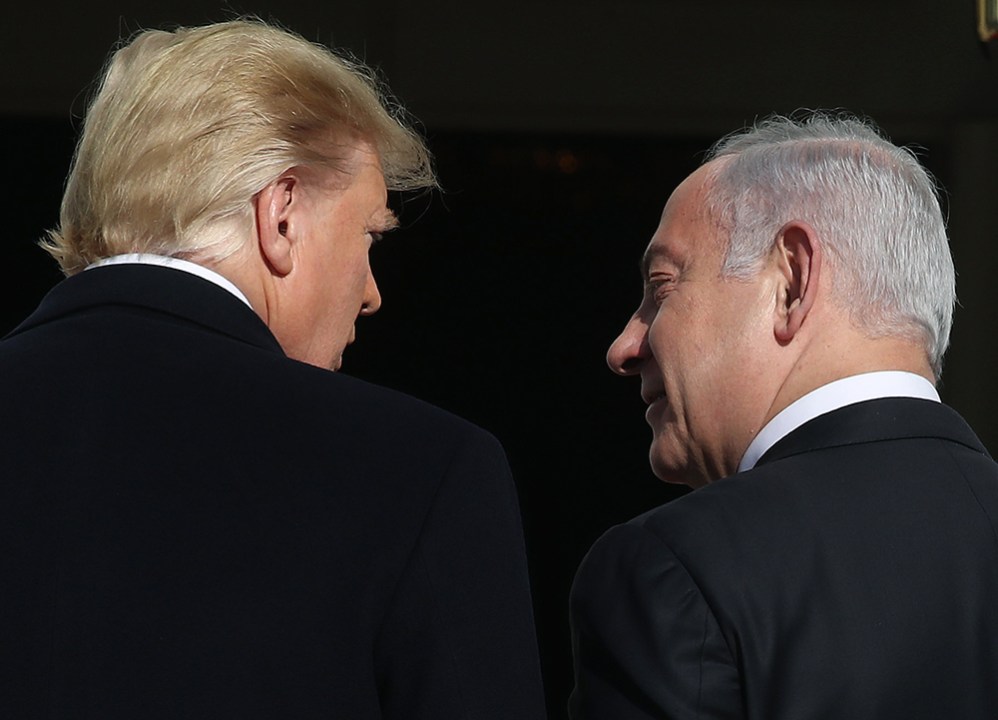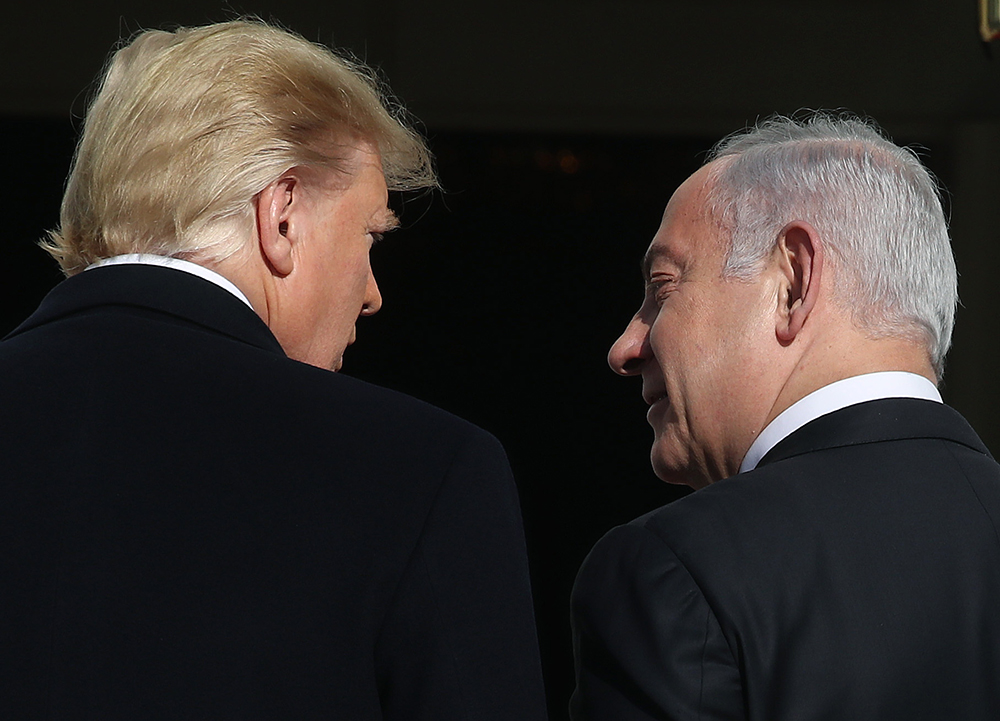
The Foreign Secretary describes his approach to diplomacy as ‘progressive realism’. One can legitimately ask what is progressive about a closer accommodation with the slave-labour-deploying Leninists of Beijing or what is realistic about ceding the UK’s sovereignty over the Chagos Islands to China’s ally Mauritius. But David Lammy seems happy in his work. His choice of words serves to give an updated gloss to what most observers would readily recognise as the Foreign Office’s traditional approach – appeasement of our enemies and embarrassment at anything which appears to be a reminder of our colonial past.
Whatever the aptest description of this government’s foreign policy, it is fair to say Donald Trump is piloting a different approach to international affairs. Rather than progressive realism, he is opting for reactionary surrealism. He is putting the naked pursuit of the national interest first, but in a manner more reminiscent of a competitor in Squid Game than a diplomat at the Congress of Vienna.
In short order, the US President has made overtures about annexing Greenland from Denmark, sent his Secretary of State to Latin America to wrest back control of the Panama Canal, imposed punitive tariffs on Mexico and Canada and then lifted them within 24 hours, applied a much more bracingly rigid tariff regime against China, and then suggested acquiring the Gaza Strip for his property portfolio as though it were a Mediterranean Mar-a-Lago. At first glance, his foreign policy appears to be one not mediated through the institutions of the EU, UN, World Trade Organisation or Nato but one administered by an individual in the grip of ADHD.
Trump’s detractors, however, should pause before reaching for familiar and cliched criticisms about his impulsiveness damaging the rules-based international order. If they repeat all the tropes of the recent past, they will not learn from it. Trump’s approach to foreign policy may be unsettling, is not without risk and could misfire in several directions all at once. But it is also a recognition of brute realities that the perfumed language of diplomacy cannot mask, and which a succession of policies favoured by western chancelleries have signally failed to address.
Donald Trump is compelling a re-examination of geopolitical realities
Trump’s Gaza initiative recognises something which almost every other government has failed to acknowledge. The search for a two-state solution that has preoccupied western diplomats for decades has run its course. That policy died, along with hundreds of innocent Israelis, on 7 October. The idea that the Israeli people would be happy with the establishment of an armed nation state alongside them in perpetuity, run by the genocidal maniacs of Hamas, is an ugly fantasy. In the aftermath of the October pogrom, Hamas proclaimed again their determination to eliminate Jews everywhere. Even as the recent ceasefire brought the welcome release of hostages, Gaza’s rulers used it to advertise their commitment to renewed terror.
It is often remarked that Israel’s Prime Minister Benjamin Netanyahu is unpopular with many of his people. They have the opportunity to show their disquiet and get rid of their government in free and fair elections, an opportunity which Hamas denies to the people of Gaza. But however many voters in Israel are unhappy with Netanyahu, it is a certainty that the number who would support a Hamas state established in Gaza is so vanishingly small that it makes the prospect unachievable.
Trump’s alternative – an American protectorate with investment to rebuild the territory as Dubai 2.0 – may seem fantastical, but it has a certain inner logic as a sequel to his previous unexpected diplomatic success with the Abraham Accords. In his first term, he persuaded Arab states such as the UAE that peace with Israel, and mutual economic benefits, should not be held hostage by the refusal of Palestinian leaders to come to their own accommodation with Israel. Past Palestinian intransigence – including Hamas’s own alliance with Iran – has proved an enduring frustration for Sunni Arab states such as Saudi Arabia and Egypt, both of whom work closely with the US on other security questions. Trump’s initiative may not be the answer, but it forces every state to ask the question of what is truly a better, and more deliverable, alternative.
And Trump can point to the speed with which his near universally condemned tariff threats against Canada and Mexico led to action by his neighbours to strengthen America’s own borders against migration and the drugs trade. His audacity secured results.
Even the overtures he has made on Greenland and Panama have compelled a re-examination of geopolitical realities. China pursues its interests in rare earths and critical minerals in Africa with a ruthless disdain for international law and seeks to secure control over transport routes and maritime checkpoints with military force and the co-option of local elites. Its Belt and Road initiative is colonialism without flags.
In the face of such ruthlessness, is America going to rely on the International Court of Justice and the best minds of Doughty Street Chambers to secure the West’s interests? Will a palisade of paper hold back a rival’s advance?
And for countries across the world weighing up which camp to join, will they choose the strong horse or the weak one? Trump understands that weakness in international relations is more provocative to an enemy than strength. If those in charge of our own foreign policy were to embrace such realism, then that really would be progress.






Comments